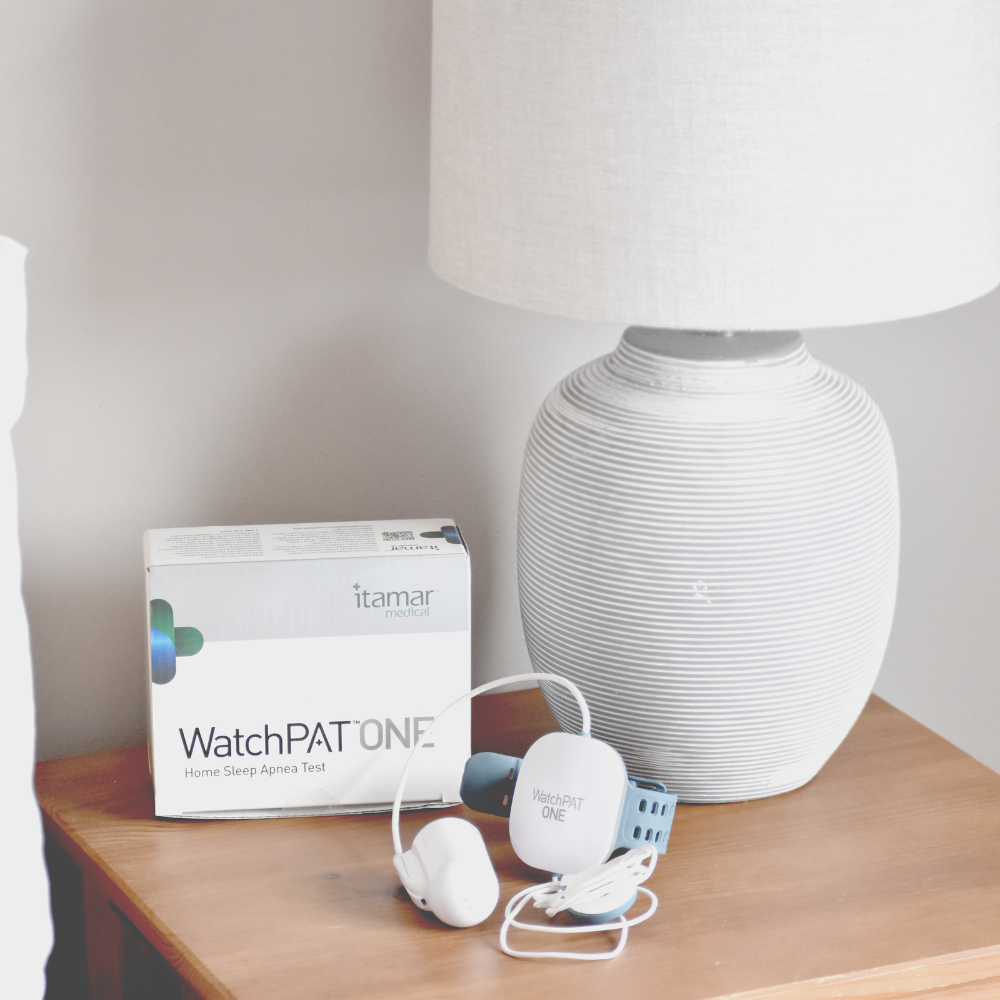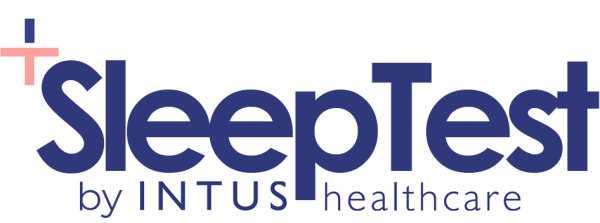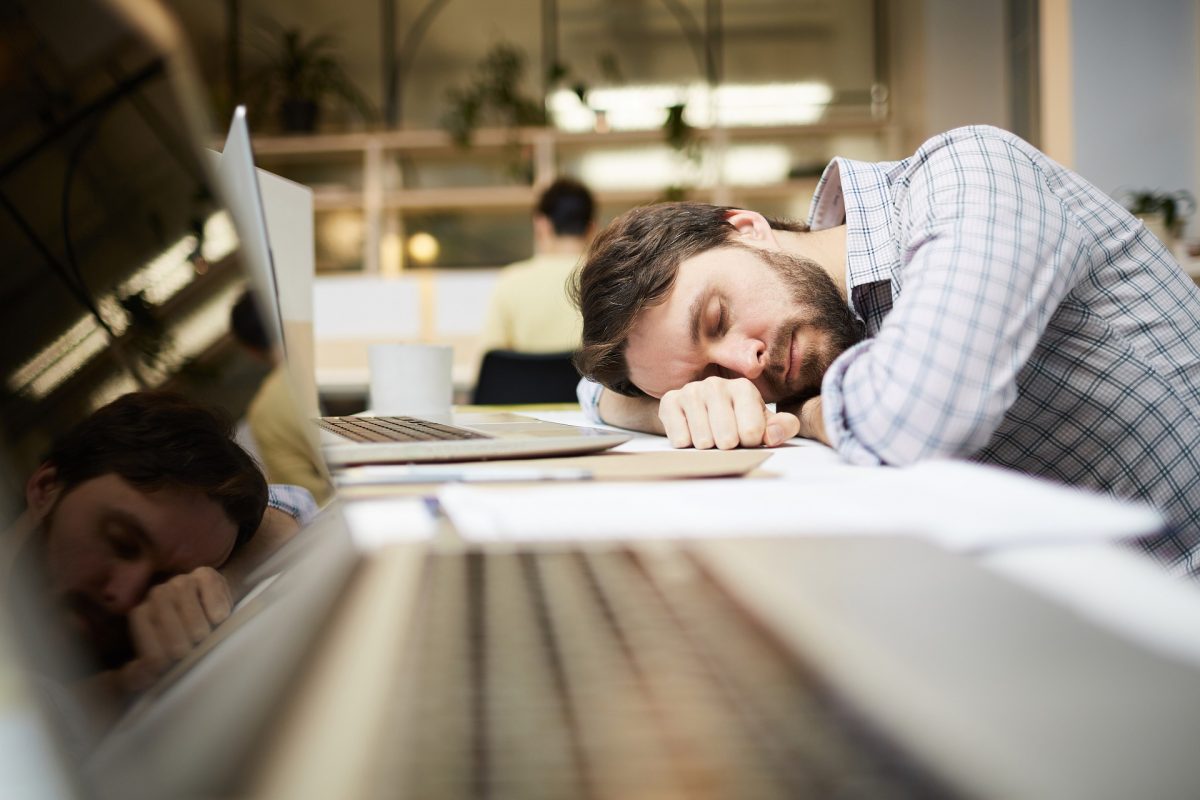Fact Checked
Intus Healthcare’s writers, customer service team, and sleep experts review and ensure this information is accurate.
Last updated on March 28th, 2025 at 01:18 pm
Stress can often lead to sleepless nights, and those who suffer from the sleep disorder Obstructive Sleep Apnoea may wonder whether it could be an underlying factor behind their condition.
As stress impacts all parts of your life, you may also wonder if your stress levels could have caused you to develop a sleep condition.
Let’s take a closer look at how stress affects your sleep.
Table of Contents
Sleeping when stressed: How does stress affect sleep?
So many things in life can contribute to daily stress and cause you to struggle to fall asleep. Stress affects your health, impacting your concentration at work, performance and completing simple day-to-day tasks. Anxiety and stress make sleeping a sufficient amount difficult, which can result in the development of a sleep disorder. Depression and anxiety are psychological health issues which can be related to insufficient sleep stemming from stress.
Stress increases the risk of developing sleep disorders, such as Insomnia and Sleep Apnoea.
Can stress cause Sleep Apnoea?
The factors that can cause Sleep Apnoea vary, and no single, specific cause exists.
Weight and family history have been found to be common risk factors for Sleep Apnoea.
But can stress cause Sleep Apnoea? Yes, too much stress can play a part in developing Sleep Apnoea and increasing symptoms.
Different types of Sleep Apnoea:
- Central Sleep Apnoea (CSA)
- Positional Sleep Apnoea
- Obstructive Sleep Apnoea (OSA)
However, CSA is more closely related to the nervous system than positional or Obstructive Sleep Apnoea. Stress symptoms may trigger CSA more frequently as it takes a heavier toll on the nervous system.
Central Sleep Apnoea is when your brain does not tell your muscles to breathe, so you do not try to breathe, causing apnoea (breathing pauses).
Can Sleep Apnoea Cause Stress?
Untreated Sleep Apnoea can make you more anxious and lead to panic attacks (1). Proper sleep helps the body relax and repair overnight, reducing muscle tension brought on by stress throughout the day.
Frequent interruptions from Sleep Apnoea stop the vital sleep repair process during sleep. The body can’t recover from the stress accumulated during the day, so the anxiety and muscle tension continue to build.
The brain also finds it tougher to deal with stress when it’s sleep-deprived, a reason those with Sleep Apnoea can experience mood swings and irritability.
The neurochemicals within the brain (these enable your brain to provide essential functions) are impacted when you are not getting consistently good sleep (2).
Your heart and blood pressure are also affected by sleep deprivation, putting you at risk of developing diabetes, hypertension and cardiovascular complications. So, it is essential to treat your sleep disorder.

Home Sleep Apnoea Test
The test monitors your heart rate, snoring intensity, blood oxygen levels, body positioning, and more, providing accuracy comparable to testing used in sleep clinics for in-depth sleep analysis.
The simple-to-use test takes just one night to complete, and results are returned within two working days after completion.
Our experienced NHS-qualified sleep professionals independently analyse all studies, providing follow-up advice and support.
The Link Between Sleep Apnoea and Stress
People with Sleep Apnoea often mention psychological symptoms such as stress, mood swings and depression, and common Sleep Apnoea symptoms such as choking during sleep, snoring, and chronic fatigue. OSA is a common sleep disorder affecting millions of adults in the UK, and 85% are undiagnosed (3).
OSA occurs when your airways become obstructed, causing breathing pauses (apnoeas) and breathing restrictions (hypopnoeas).
Untreated Sleep Apnoea can negatively affect your physical and mental health. The most widely used and effective Sleep Apnoea treatment is CPAP therapy, which can improve your mental health and help reduce stress levels.
Ways to Reduce Stress Levels
People confirmed with Sleep Apnoea will be advised of treatment appropriate for the severity of their disorder (positional, mild, moderate, or severe). The severity of your OSA depends on your Apnoea Hypopnoea Index(AHI) – this is the number of breathing pauses you have each hour during sleep. Reducing stress levels can lower the number of breathing pauses experienced.
Here are some ways to reduce stress:
Practice self-care: Taking time for yourself and doing things you enjoy can improve your feelings and mood. Some things you could try include:
- Taking a bath
- Reading a book
- Lighting candles
- Spending time with your family
- Getting a massage
- Stretching before bed
- Meditation
- Picking up or taking part in a hobby
Eat a balanced diet: A more nutritious diet with foods that help you sleep impacts every aspect of your health. Research has found that those who consume a diet with highly processed foods and added sugars are more likely to experience higher stress levels (4). Not eating a nutritious diet can increase the risk of deficiencies, impacting your mood. Alternatively, being stressed can lead to overeating and choosing high-fat foods.
Be physically active: Exercising regularly andlosing excess weight can enhance your physical and mental health; if you are not physically active, start walking or riding a bike to get your body used to it.
Spend time outside: Studies show that spending as little as ten minutes with nature can help improve psychological and physiological markers of mental well-being, increasing happiness (5). Take some time out of your day to enjoy the greenery.
Minimise screen time: Using a smartphone, laptop, or tablet too often can increase stress levels. Using them too close to bed can also make it harder to fall asleep due to the emitting blue light pausing the release of the sleep hormone melatonin.
Create boundaries: Learn to do what you want when you want; living to please others will strain your mental health. A way to help reduce your stress levels is to say no more often; too many responsibilities can make it harder to relax and wind down.
Avoid procrastinating: Leaving things to the last minute can increase your workload and complicate your day. Try to plan your work by creating a to-do list or creating deadlines so it can be manageable.
Practice mindfulness: Mindfulness involves being in the present moment without any judgement. It is similar to meditation and helps you become calmer, more focused and kinder towards yourself.
Consider natural supplements: Vitamins and minerals play an important role in how you feel; for those with a deficiency, taking a supplement can help. For example, stress can cause a lack of magnesium, and since it plays a vital role in mood, you may want to take a supplement. Studies show that magnesium supplements can improve chronic stress levels (6).
Reduce caffeine: Caffeine can be found in many drinks, not just tea and coffee; it stimulates your central nervous system. Consuming too much can make it harder to fall asleep, preventing you from reaching a deep sleep. Restricting your sleep can lead you to wake up moody and irritable.
Put your sleep first: Sufficient sleep is one of the best ways to improve stress levels.
Please note: Other conditions can cause Sleep Apnoea. If you would like to learn more, take a look at this page: 12 Conditions Which Can Cause Sleep Problems.
Identifying Sleep Apnoea
If you think you or your partner have Sleep Apnoea, take an In-Home Sleep Test to find out. It’s a quick and simple alternative to the NHS sleep clinic.
Our NHS sleep technicians review your data and return your results within two working days. If you need any further help, contact us.
About Our Editorial Team
Danni is a degree-educated content writer passionate about helping those with Sleep Apnoea sleep better; she works closely with our clinical and customer care teams to ensure that each article is thoroughly researched and accurate.
Her writing aims to inform, support, and advise readers about Sleep Apnoea, helping to raise awareness and promote effective treatment options.
She has written many health-focused articles, reaching hundreds of readers annually, to help people sleep better and live healthier lives.
Lateisha King is an experienced Sleep Clinician with advanced training in polysomnography and respiratory health.
With over six years of experience, including at the prestigious Guy’s and St Thomas’ NHS Foundation Trust Hospital, she has conducted and reviewed more than 500 diagnostic sleep studies.
Her expertise in sleep science ensures that all articles align with the latest data and treatment protocols, providing readers with trustworthy and practical advice to improve their sleep health and overall well-being.
REFERENCES
- Chase Dental Sleepcare. Can Sleep Apnea Cause Panic Attacks? Available at: https://www.chasedentalsleepcare.com/blog/can-sleep-apnea-cause-panic-attacks. Accessed: 30.08.23.
- Puya Yazdi, MD (2022) How Brain Health & Neurotransmitters Affect Sleep. Available at: https://health.selfdecode.com/blog/sleep-neurophysiology/. Accessed: 30.08.23.
- ResMed. (2023, September 14). Sleep apnoea and respiratory care: ResMed. ResMed UK. Available at: https://www.resmed.co.uk/patient/resources/sleep-apnoea-blog/936-million-have-osa-worldwide/. Accessed: 19.09.23.
- Lane MM, Gamage E, Travica N, Dissanayaka T, Ashtree DN, Gauci S, Lotfaliany M, O’Neil A, Jacka FN, Marx W. (2022). Ultra-Processed Food Consumption and Mental Health: A Systematic Review and Meta-Analysis of Observational Studies. Nutrients. https://pubmed.ncbi.nlm.nih.gov/35807749/. Accessed: 19.09.23.
- Meredith GR, Rakow DA, Eldermire ERB, Madsen CG, Shelley SP, Sachs NA. Minimum Time Dose in Nature to Positively Impact the Mental Health of College-Aged Students, and How to Measure It: A Scoping Review. Available at: https://www.ncbi.nlm.nih.gov/pmc/articles/PMC6970969/. Accessed: 19.09.23.
- Botturi A, Ciappolino V, Delvecchio G, Boscutti A, Viscardi B, Brambilla P. The Role and the Effect of Magnesium in Mental Disorders: A Systematic Review. Available at: https://www.ncbi.nlm.nih.gov/pmc/articles/PMC7352515/. Accessed:19.09.23.
Published: August 30, 2022





